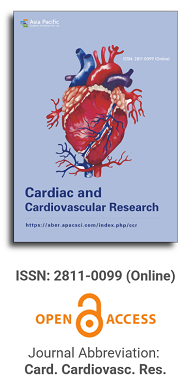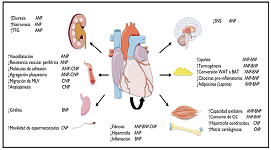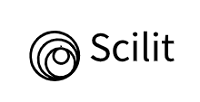
Asia Pacific Academy of Science Pte. Ltd. (APACSCI) specializes in international journal publishing. APACSCI adopts the open access publishing model and provides an important communication bridge for academic groups whose interest fields include engineering, technology, medicine, computer, mathematics, agriculture and forestry, and environment.

A study of cardio vascular disease prediction and optimization of health care data
Vol 5, Issue 1, 2024
Download PDF
Abstract
Cardiovascular disease (CVD) is a leading cause of morbidity and mortality worldwide, accounting for a significant proportion of healthcare costs. It is a major public health concern, and early detection and prevention are critical for reducing its burden. Several risk factors for CVD have been identified, including age, sex, genetics, hypertension, diabetes, smoking, and physical inactivity. Despite the identification of several risk factors, there is still a lack of understanding of the underlying mechanisms that contribute to CVD development. This study aimed to investigate the potential predictors of CVD and identify novel biomarkers that could be used for early detection and prevention. The study explored pre-processing strategies, including Synthetic Minority Oversampling Technique (SMOTE), Z-Score Normalization, and Adaptive Synthetic Sampling (ADASYN), to address class imbalance and enhance model performance. The dataset consisted of medical images labeled with different cardiovascular diseases. By integrating the strengths of Support Vector Machines (SVM) classification and Linear Discriminant Analysis (LDA), Principal Component Analysis (PCA), and PCA with ReliefF feature retrieval methods, the study investigated various feature extraction approaches for classifying cardiovascular diseases.
Keywords
References
- Jebaseeli TJ, M NK, Subagar A, et al. Cardio Vascular Disease Prediction and Classification Report Generation using Data Mining Technique. In: Proceedings of the 3rd International Conference on Smart Data Intelligence (ICSMDI).
- Ghosh P, Azam S, Jonkman M, et al. Efficient Prediction of Cardiovascular Disease Using Machine Learning Algorithms with Relief and LASSO Feature Selection Techniques. IEEE Access. 2021; 9: 19304-19326. doi: 10.1109/access.2021.3053759
- Alalawi HH. Detection of Cardiovascular Disease using Machine Learning Classification Models. International Journal of Engineering Research & Technology (IJERT). 2021; 10(7).
- Rustam F, Ishaq A, Munir K, et al. Incorporating CNN Features for Optimizing Performance of Ensemble Classifier for Cardiovascular Disease Prediction. Diagnostics. 2022; 12(6): 1474.
- Zhang D, Chen Y, Chen Y, et al. Heart Disease Prediction Based on the Embedded Feature Selection Method and Deep Neural Network. Journal of Healthcare Engineering. 2023; 6260022. doi: 10.1155/2021/6260022
- Thiriet M. Cardiovascular Disease: An Introduction. Springer; 2018.
- Sale Elsedawy HF. Overview of the Most Prevalent Pediatric Congenital Heart Diseases: A Literature Review. Asian Journal of Pediatric Research. 2023.
- Erkan AKKUR. Prediction of Cardiovascular Disease Based on Voting Ensemble Model and SHAP Analysis. Sakarya University Journal of Computer and Information Sciences. 2023.
- Dorraki M. Cardiovascular disease risk prediction via machine learning using mental health data. European Heart Journal—Digital Health. 2022.
- García-Vicente C, Soguero-Ruiz C, Mora-Jiménez I, et al. Clinical Synthetic Data Generation to Predict and Identify Risk Factors for Cardiovascular Diseases. In: Lecture Notes in Computer Science. Springer; 2022.
- Abraham G, Rutten-Jacobs L, Inouye M. Risk Prediction Using Polygenic Risk Scores for Prevention of Stroke and Other Cardiovascular Diseases. Stroke. 2021; 52(9). doi: 10.1161/strokeaha.120.032619
- Rodriguez F, Foody JM. Primary Prevention of Cardiovascular Disease. In: Stergiopoulos K, Brown D (editors). Evidence-Based Cardiology Consult. Springer; 2014. doi: 10.1007/978-1-4471-4441-0_12
Supporting Agencies
Copyright (c) 2024 L. Pushpalatha, R. Durga
License URL: https://creativecommons.org/licenses/by/4.0/

This site is licensed under a Creative Commons Attribution 4.0 International License (CC BY 4.0).

Prof. Prakash Deedwania
University of California,
San Francisco, United States




